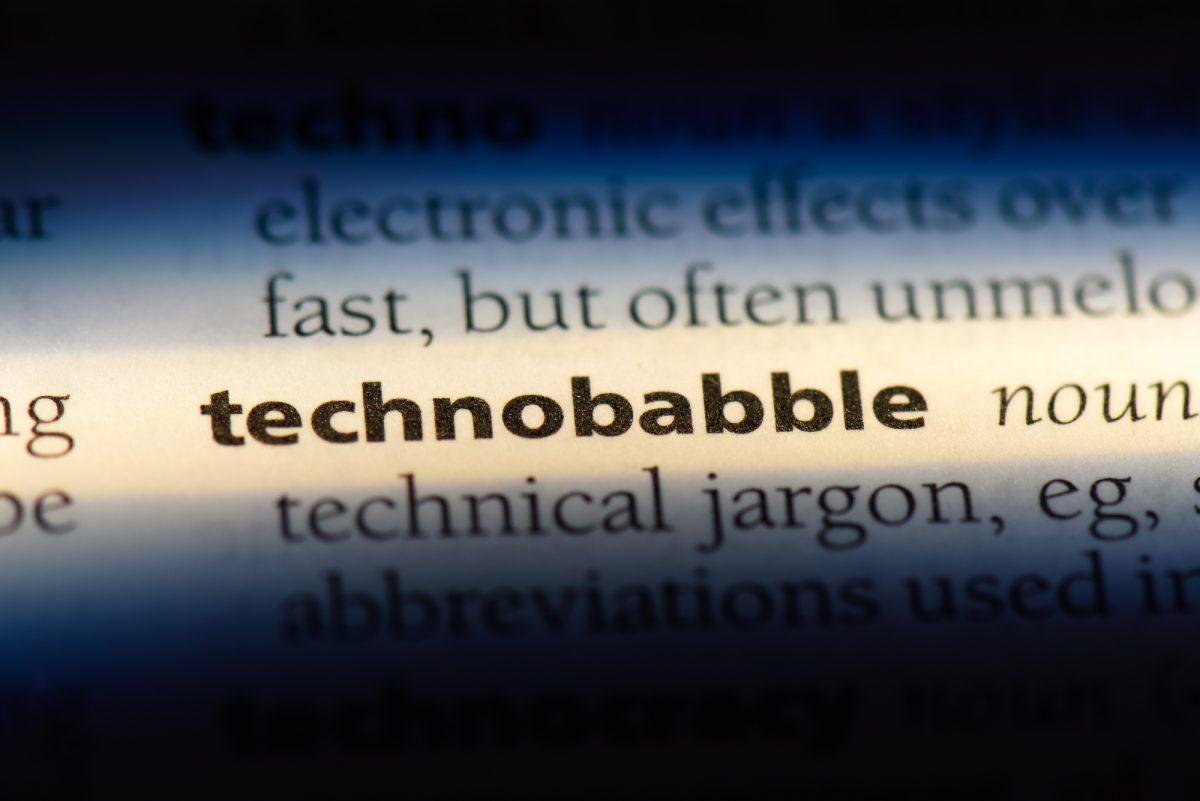It’s time for technology to cut the jargon.
We work in a sector which full of complex products that often end up with obscure names. We’re all guilty of using phrases and technical terminology to describe these products but these innocent over-complications have now become habit and it gets in the way of people’s understanding.
We asked the great British public which sector was the worst offender when it came to unnecessary use of overcomplicated jargon and Technology topped the list.
Among the most hated terms people replied to us with were:
1. Internet of things
2. Synergy
3. Tech stack
4. Digital transformation
5. XaaS (anything as a service)
Now this might be considered a trivial problem, but it does have serious real-world consequences.
Putting off fresh talent
Cutting out counterproductive technobabble can help us broaden the sector’s appeal just when companies are struggling to attract skilled candidates.
UK tech job vacancies are up 191% on this time last year, according to the BCS, with over 1 million positions lying vacant. Yet 60% of jobseekers say they’ve avoided applying for tech jobs because they were put off by jargon and technobabble.
Younger workers are the most likely to be put off by technology jargon. 70% of those we spoke to aged between 16 and 24 said they had been put off from applying for roles for this reason. Ironic, given that these younger workers are just the group with the technology skills companies need to be engaging with.
Costing businesses time and money
With inflation climbing to 9% and oil prices reaching new highs of $123 a barrel, UK businesses are under huge pressure, especially mid-size businesses who may not be able to draw on the war chests of larger companies. Now more than ever, they really need to be able to tap into the benefits of tech so they’re as efficient as possible.
Technobabble also causes businesses to delay decisions around technology investments that could be saving them time and money, keeping them safer or enabling more flexible ways of working. Nearly two thirds (62%) of businesses told us that not being able to understand jargon has led to them abandoning a technology purchase or not using a particular supplier.
Calling time on technobabble
At Babble, we’ve been as guilty as anyone at occasionally drifting into technobabble. But we’re going to make an effort to eliminate it from our business and we’re hoping others will do the same. This is a simple change we can all make, which will make a big difference.
That’s why we’ve enlisted the help of the fabulous poet, Brian Bilston, and created an anthology of technobabble poems.
We hope it will be taken in the spirit it is intended: as a chance to collectively laugh at ourselves, but also to stop and think about using plainer, clearer language in future.
 United Kingdom
United Kingdom United States
United States Asia Pacific
Asia Pacific


























CLIA expands trade support with expedition event
Qatar Airways adding Manchester flights
Jet2 unveils Samos as new Greek destination for summer 2026
EU entry-exit system delayed again
ATC strike in Greece could disrupt flights this week